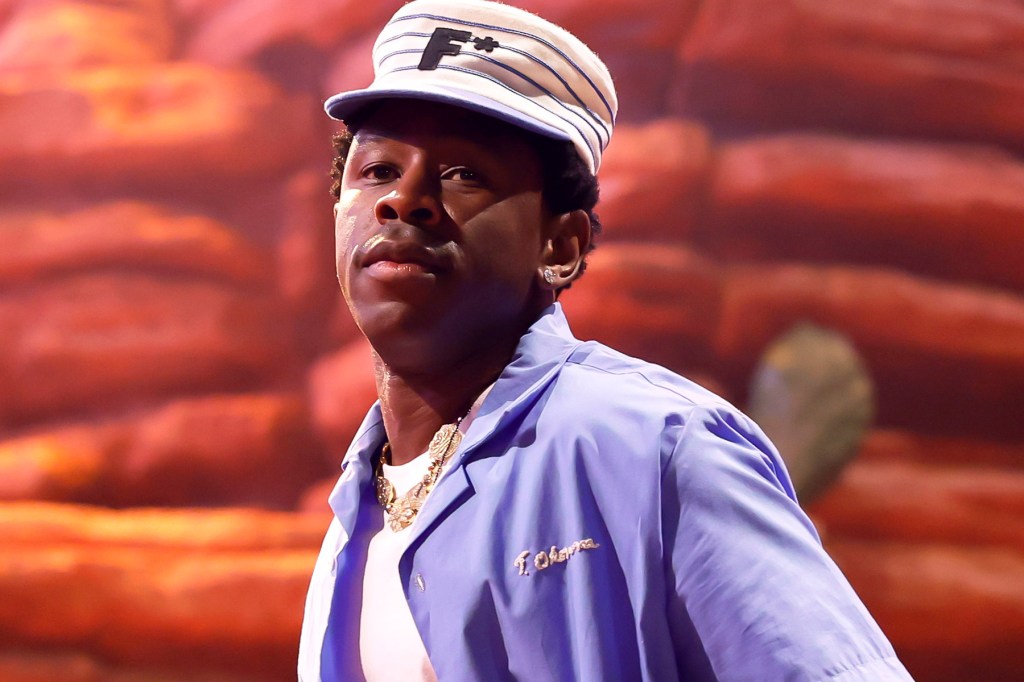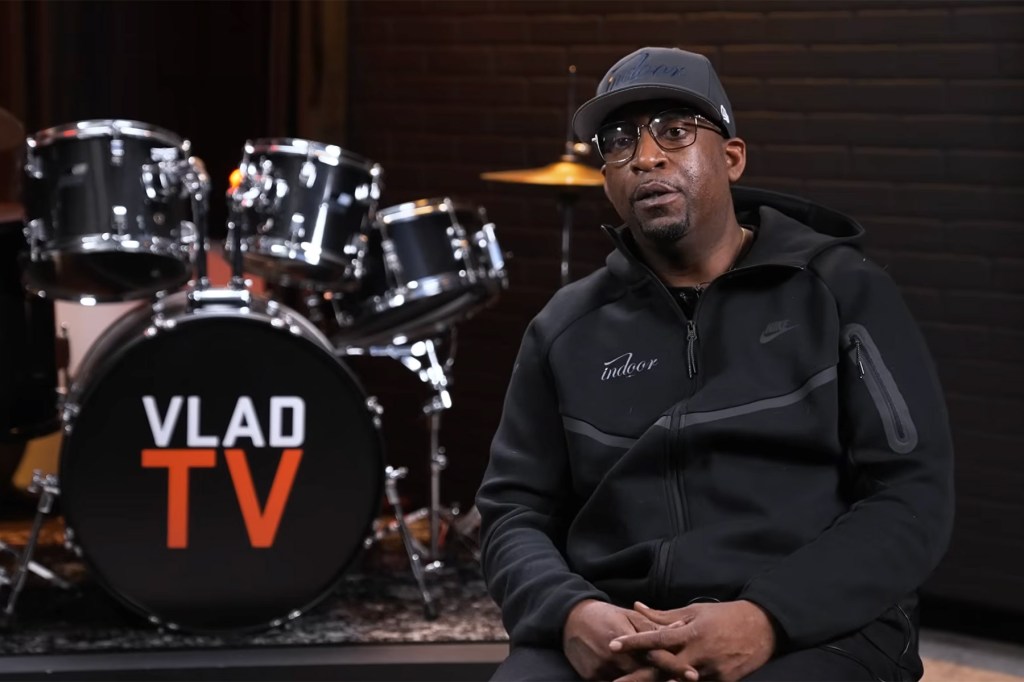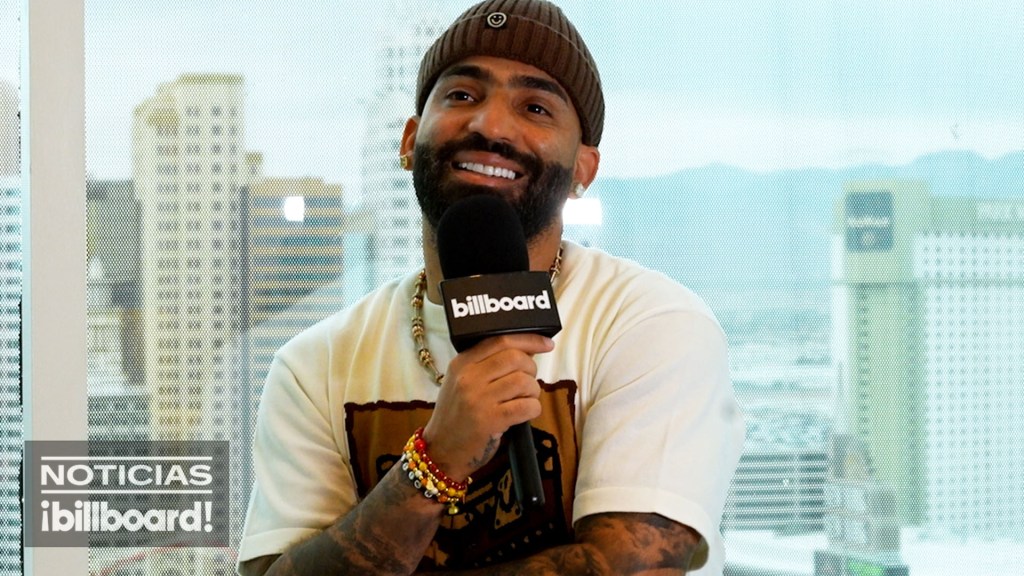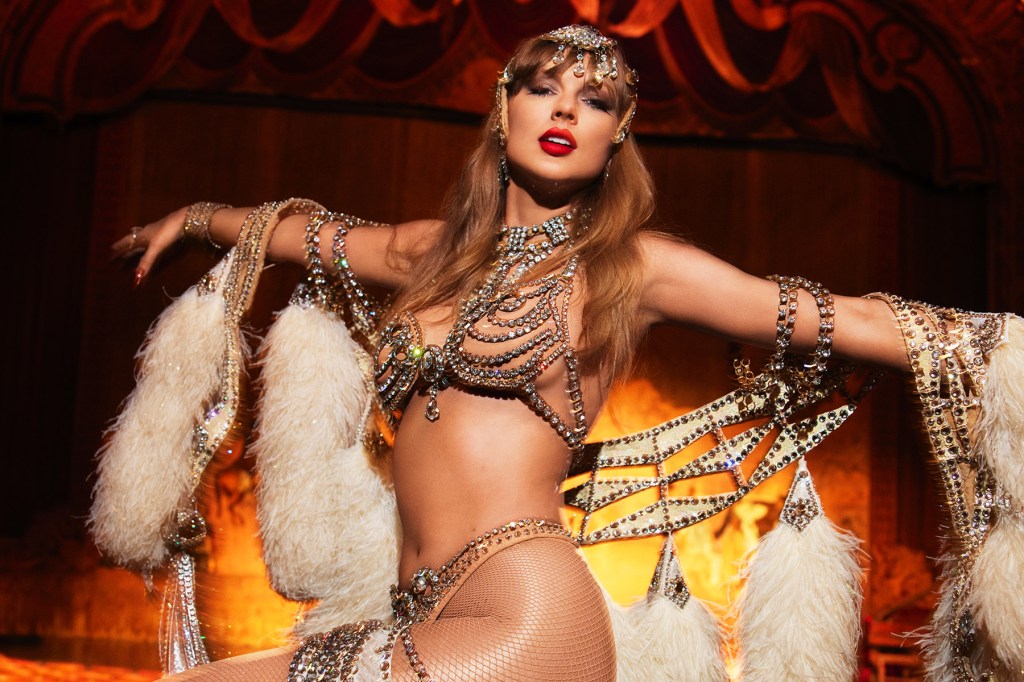Music News
Page: 46
Trending on Billboard
Joe Morrison may spend his days working as a personal injury lawyer at law firm Mullen & Mullen, but by night, he’s an avid music fan hoping to protect the live music scene he has supported and nourished for decades.
Together, Morrison, his partner Shane Mullen and Dallas-based production manager Corey Pond have launched the JAMBALOO Music Prize, offering one artist or group a $20,000 check along with professional recording time, promotional support and industry connections in North Texas. The prize represents the latest expansion of the firm’s JAMBALOO Festival, which debuted last year with 25 free shows across different venues in and around Dallas and Fort Worth.
Related
The competition is open to any artist or band with more than 50% of permanent members residing in the Dallas-Fort Worth metro area; artists can participate by submitting an album with seven or more songs via Bandcamp, Spotify, Apple Music or Tidal. Fifteen anonymous judges will evaluate the submissions and select 10 semifinalists who will compete to become one of three finalists. The winner will be chosen through a weighted vote by a panel of experts, as well as a vote by music fans.
“We didn’t want it to be a popularity contest, which is what sometimes these things can turn into, but we did want there to be an element of public voting, because success and popularity do matter,” Pond explains.
Three finalists will perform on June 6 alongside a to-be-determined national headliner, with all tickets free to the public. The June showcase will take place at Longhorn Ballroom, a historic Dallas venue once managed by Jack Ruby, infamous for gunning down Lee Harvey Oswald after Oswald shot and killed U.S. President John F. Kennedy near Dallas’ Dealey Plaza. The Longhorn was reopened by Texas promoter Edwin Cabaniss and Kessler Presents in spring 2023 after a multimillion-dollar renovation that included a new 6,500-capacity outdoor amphitheater.
Related
Besides the $20,000 cash prize, the winner will also win a recording session at Dallas’ Luminous Sound studio with four-time Grammy winner Tre Nagella, as well as featured placement at Josey Records, one of the nation’s largest record stores; a live session recorded at NPR affiliate KXT radio; and an email promotion to 650,000 music fans.
“For a local artist, that [money] could fund an entire new album, that could fund the start of a tour,” says Nagella. “This isn’t like a record deal where they’re beholden to someone — they’re free to use it however they want to use it.”
Mullen & Mullen is also hosting a separate $20,000 venue prize, which was launched after the Fort Worth Music Office reached out about The Cicada, a venue facing closure. The venue prize will become an annual summer competition for independently owned, locally operated music spaces.
“We were looking for a way to kind of give back to the community, but to do it in a fun and unique way,” said Morrison, noting that the firm has invested more than $500,000 in the music initiative so far. “As a personal injury lawyer, who the hell wants to interact with me on social media? It felt better if we could give back in an authentic way where people just see us in a different light.”
Related
The JAMBALOO Music Prize is part of a broader vision for the Mullen & Mullen Music Project, which aims to support the North Texas music scene year-round rather than through a single annual event. Plans include pop-up shows, educational panels and industry mixers modeled after South by Southwest’s programming.
Last year’s inaugural JAMBALOO Festival featured notable performances, including a set by rising indie artist MJ Lenderman. The festival is strategically scheduled in February, traditionally a slow period for venues and artists.
“Let’s try to take a time of the year that’s traditionally bad for the industry and for artists, and turn it on its head a little bit,” Morrison says.
Dallas-based artists can submit their work at JAMBALOO.live.
Trending on Billboard Tony Yayo isn’t entertaining the thought of taking on Memphis Bleek in a potential Verzuz battle, as the G-Unit rapper doesn’t even think it would make for a fair fight. Yayo stopped by VLADTV for an interview on Thursday, and DJ Vlad asked him about who would win in a Verzuz between […]
Trending on Billboard Arcángel opens up about how he stays true to himself and explains the differences between Austin Santos and his on-stage persona. Arcángel: In fact, I consider myself more of a person than an artist. I’ve always been like that because every time I have to give an opinion, I speak as Austin […]
Trending on Billboard
Federal prosecutors are urging a judge to sentence Tekashi 6ix9ine to between three and nine months in prison for possessing drugs and assaulting someone who taunted him about flipping on former Brooklyn gangmates.
The rapper (Daniel Hernandez) is due to be sentenced by Judge Paul A. Engelmayer next Thursday (Nov. 20) after pleading guilty to multiple violations of his supervised release. Tekashi’s probation stems from a 2018 racketeering prosecution, in which he testified against other members of the Nine Trey Gangsta Bloods in exchange for leniency.
Related
Tekashi broke the rules of supervised release by possessing cocaine and MDMA this past February, then again by punching and kicking a man in August at a Florida mall, who made derogatory comments about his cooperation with law enforcement. Now, prosecutors say prison time is warranted because Tekashi “violated the court’s trust.”
“While it brings the government no joy to seek a custodial prison sentence for a former cooperator, the court must send a message to Hernandez and other government cooperators — or those considering cooperating with the government — that they are not above the law by virtue of their status as cooperators,” wrote Assistant U.S. Attorney Jonathan Rebold in a Wednesday (Nov. 13) sentencing recommendation.
Meanwhile, Tekashi’s attorney says six months of house arrest is a more appropriate sentence. Defense lawyer Lance Lazzaro sought to put Tekashi’s violations in perspective in a Nov. 6 court letter, noting that the rapper was caught only with “a very small amount” of drugs and that the victim of his Florida assault, who was the “initial aggressor” in the dispute, was not seriously injured.
Related
Lazzaro also advised Judge Engelmayer that for a cooperator like Tekashi, months in prison “end up being much more severe, difficult, and even dangerous, when compared to a typical inmate.”
“Due to Mr. Hernandez’ classification, he always serves his jail time segregated and fully isolated from other inmates,” wrote Lazzaro. “As a result, Mr. Hernandez is given extremely limited social interaction with other inmates and very little time outside to get fresh air and exercise.”
Neither Lazzaro nor a rep for the prosecution immediately returned requests for comment about the sentencing recommendations on Friday (Nov. 14).
Back in 2018, Tekashi pled guilty to nine racketeering, gun and drug charges related to his time in the Nine Trey Gangsta Bloods. He admitted to being involved in a slew of violent incidents targeting rival rappers, including a 2017 assault of Trippie Redd, and testified against his former gang associates at a high-profile trial in 2019.
Related
The charges in Tekashi’s plea could have subjected him to decades in prison. But Judge Engelmayer sentenced him to just two years behind bars due to his “game-changing” and “brave” cooperation, and he got out even faster because of health risks during the early days of the COVID-19 pandemic.
Tekashi began a five-year term of supervised release after getting out of jail in 2020. He had just months left on probation when, in November 2024, the rapper was charged with a host of violations, including using methamphetamine, failing to appear for drug tests and traveling to Las Vegas without permission.
The rapper admitted to these violations, and Judge Engelmayer sentenced him to 45 days in jail plus another year of supervised release. After his release last December, Tekashi was again caught violating probation by possessing cocaine and MDMA. Then came the Florida assault, which happened while he was awaiting sentencing for the drug violations.
Prosecutors now say that whatever sentence Tekashi receives on Nov. 20, it should be followed by a fresh two-year supervised release term. And this time, they add, he should be required to seek substance abuse treatment and anger management counseling.
“Hernandez is now six years removed from his criminal sentencing; yet he still appears unable to control his temper when slighted by a random stranger,” reads the prosecution’s sentencing memo. “Hernandez must learn to turn the other cheek and walk away from situations like these moving forward.”

Trending on Billboard Tyler, the Creator announced on Friday (Nov. 14) that he will be postponing his 11th annual Camp Flog Gnaw festival this weekend due to inclement weather in Los Angeles, California. The LA Times reported on Friday that an “incoming atmospheric rain storm” is headed to Los Angeles County this weekend that will […]
Trending on Billboard
Taylor Swift possesses the key to another No. 1 on Billboard’s Pop Airplay chart. She adds her record-extending 14th leader on the list as “The Fate of Ophelia” leaps three spots to the top of the Nov. 22-dated ranking.
Justin Bieber, Maroon 5, Bruno Mars, Katy Perry and Rihanna share the second-most Pop Airplay No. 1s, 11 each.
Here’s a recap of Swift’s 14 No. 1s on Pop Airplay, which measures songs’ weekly plays, as tabulated by Mediabase and provided to Billboard by Luminate, on more than 150 U.S. mainstream top 40 radio stations. (The chart began in October 1992.)
Title, Weeks at No. 1, Year(s):
“The Fate of Ophelia,” one (to date), 2025
“Is It Over Now? (Taylor’s Version) [From the Vault],” one, 2024
“Cruel Summer,” 10, 2023
“Karma,” one, 2023
“Anti-Hero,” three, 2022-23
“Delicate,” one, 2018
“Look What You Made Me Do,” one, 2017
“Wildest Dreams,” two, 2015
“Bad Blood” (feat. Kendrick Lamar), five, 2015
“Style,” three, 2015
“Blank Space,” six, 2014-15
“Shake It Off,” two, 2014
“I Knew You Were Trouble.,” seven, 2013
“Love Story,” one, 2009
The coronation for “The Fate of Ophelia” marks the song’s latest achievement on Pop Airplay, after it debuted at No. 8 on the Oct. 18 chart, becoming the first title ever to arrive in the top 10. It reigns in its sixth week on the list, completing Swift’s quickest rise to No. 1 since “Bad Blood” led in its fifth frame in 2015.
“The Fate of Ophelia” is from Swift’s album The Life of a Showgirl. The set and song have topped the Billboard 200 and Billboard Hot 100 charts, respectively, for five weeks running, encompassing their entire runs on the rankings so far.
Plus, the album’s “Opalite” ascends 25-20 on Pop Airplay for a new high.
“‘The Fate of Ophelia’ allowed her fans to peek in the window of her newfound happiness,” Nadine Santos, Music Choice vp of programming and artist relations, tells Billboard; Music Choice’s Pop Airplay reporter Today’s Hits is playing both of Swift’s love songs on the current chart. “With her witty and creative approach to her song lyrics, it’s the Taylor we have all been waiting to hear.”
All charts dated Nov. 22 will update on Billboard.com Tuesday, Nov. 18.
Trending on Billboard Drake has responded to an old rumor that a T.I. associated once urinated on the Canadian rapper. The incident in question became a talking point back in 2015 after Meek Mill claimed in his diss track “Wanna Know” that Drizzy, “let Tip’s homie piss on [him] in a movie theater.” The rumor […]
Trending on Billboard
This is partner content.
Just in time for the holidays, Claire Rosinkranz is partnering with Billboard and Native to spread some joy with her new song “It’s That Native Holiday Cheer.” Cozy up and watch the story unfold — a night of sugar cookies, mistletoe, and holiday magic.
When you’re done, you can click here to shop Native’s limited-edition holiday collection.
Ashley: Hey guys! How’s everything?
Claire Rosinkranz: Ashley, this is Nick. Nick, Ashley.
Ashley: Very nice to meet you, Nick. Thank you guys so much for performing. It means so much.
Nick: Didn’t realize sugar cookie season came early.
Claire: Is somebody baking cookies?
Ashley: It’s Native Sugar Cookie Deodorant Spray!
Claire: [singing “It’s that Native Holiday Cheer”]: It’s that feeling in the air; holiday cheer, so clean and so clear.
Scents so captivating, don’t be hesitating when there’s memories to be making.
So let’s make a move. Festive magic, baby, me and you.
It’s Native … so near. You’re the gift I want this year!
It’s my favorite time of year, sugar cookies in the air.
Simple joy, let laughter steer, it’s that Native holiday cheer!
Pure like the morning snow, kiss me under the mistletoe.
Holiday gumdrops? Yeah, let’s go! It’s that Native holiday cheer!
Keep watching the video above for more!

Trending on Billboard
Growing up in New York City, I’ve watched footwear evolve from utility to identity. In a place where the right pair of shoes can say more than a full outfit, we’ve entered an era where craftsmanship and authenticity matter more than hype. Walk through SoHo, the LES, or even a late-night industry event in Midtown, and you’ll see it: people are gravitating toward pieces that feel personal, elevated, and built to last.
Explore
See latest videos, charts and news
That’s why Steven Victor stepping into footwear feels so natural. Known for shaping some of the most influential sounds and careers in music, he’s always operated with intention, nothing loud, nothing forced, everything rooted in quality. His debut public boot with Timberland carries that same energy.
From the moment you pick it up, the difference is clear. Steven went with an ultra-soft leather that gives the boot a distinct feel. His take on the Timberland 6-inch boot is luxury without the stiffness. Quiet confidence in shoe form.
For me, the classic wheat Timb is one of the first shoes I ever understood as “culture.” It’s been on construction sites, in subway stations, in music videos and in moments that shaped hip-hop history. It’s woven into the fabric of the city, durability that mirrors our grit, style that mirrors our confidence, and a presence that mirrors our energy.
Victor Victor x Timberland
Courtesy Photo
New York has always been a city where fashion and music intersect, not in theory, but in lived experience. Artists shape trends, audiences shape culture, and the city shapes everything. Steven’s Timbs fits right into that lineage. It’s not chasing attention. It’s not chasing a moment. It’s grounded in who he is and what he stands for: intention, discipline, and craft.
And in a landscape where collaborations, drops, and hype cycles move fast, it’s refreshing to see a piece that isn’t trying to be viral, it’s trying to be valuable.
The Timberland x Victor Victor 6-Inch Boot stays true to everything that made the original untouchable, the timeless wheat suede, the shape, the workwear DNA, and the spiritual connection to this city, while bringing in just enough of Victor Victor’s own identity to make the pair feel personal, intentional, and elevated.
You get blue suede accents on the collar as a nod to Detroit, a city that shaped Steven Victor in unexpected ways; custom blue laces that stand out without doing too much; embossed Victor Victor branding on the side panel; the signature dog logo stamped into the tongue and hang tags; and, most surprising, the softest inner leather I’ve ever felt on a Tim, a full smooth blue-leather interior. As Steven told me, “what’s inside matters the most.” That detail says everything about his design philosophy: keep the outside authentic, and elevate what you feel when you step into it.
Victor Victor x Timberland
Courtesy Photo
For me, this one’s a Flex, easily. The quality, the story, the execution, the versatility, it all lines up. This is the kind of boot that elevates a wardrobe, not just a fit. A piece made to last, not trend.
The Timberland 6-inch boot is New York City. It’s childhood, it’s culture, it’s fashion, it’s history.
This collaboration respects the heritage, adds thoughtful details, and bridges two cities that move culture forward. The craftsmanship is there, the story is there, the authenticity is there, and the execution feels like it came straight from the heart of someone who loves both music and fashion.
But now it’s your turn: Flex, Trade or Fade? Are you adding Steven Victor’s debut boot to your rotation, waiting to see how it holds value, or passing altogether?
Billboard caught up with Steven Victor to explore the story behind the Timberland x Victor Victor six-Inch Boot, the influence of both New York and Detroit, and how heritage, family and culture continue to shape everything he creates.
What first sparked the idea for a Victor Victor x Timberland collaboration?
I’ve always wanted to do something with them. So, when I finally found a connection over there, that was the first thing I said. We actually did it last year, it started as a friends-and-family release where they gave me about 20 pairs. I designed it, gave it to my closest friends, and that version is pretty much the same one that just dropped.
To answer your question about what sparked it, one of my favorite shoes, and honestly, a favorite for anybody from New York, is the classic wheat six-inch Timberland boot. I’ve always wanted to work on that silhouette, because everything about me is New York City. And when you think about New York, you think about that boot. So to me, it just made sense, Victor Victor NYC, Timberland, six-inch boot, New York City. Why not?
Detroit plays a big role in this project, what about the city’s culture made it the heart of this story?
To be honest, it wasn’t something I thought about initially because, like I said, everything to me is about NYC. But my wife is from Michigan. So I spend a lot of time out there, and I’ve got a lot of friends in Michigan too, mainly rappers I know from out that way.
And to be super honest with you, we were watching a Lions game — we’re huge Detroit Lions fans — and the wide receiver Jameson Williams made this crazy catch. I was like, “Yo, this dude is fly. I wanna shoot him in some Timbs.”
So it kind of grew from there. I’ve got love for NYC, but I’ve also got love for Detroit. Music is everything to me, and Motown was born there. To me, that’s the essential record label, not just for music, but for our music, you feel me? All that pain and soul it represents.
Plus, I love cars, that’s the automotive capital of the world. And I just feel like Detroit represents all the same things we represent as a company: resilience, hustle, hard work, endurance. Detroit got that spirit, and most importantly, Detroit gets fly.
So you got music, cars, hustle, endurance, and a whole lot of style. I just love Detroit, to put it simply.
The blue accents really stand out. What does that color represent for you and for Victor Victor?
That one’s super simple, it’s just that blue is my favorite color, and that specific hue is my favorite shade of blue. It’s really that straightforward. It’s become kind of a staple color for the company just because it’s my favorite.
Everything I do, I have to genuinely love it. I don’t ever want to put something out that I’m not completely into, even down to something as simple as the color.
When you’re reimagining a classic like the 6-Inch Boot, how do you balance Timberland’s heritage with your own creative vision?
I’d compare it to cars. I’m really into cars. If I get a super fly car, I’m not gonna put aftermarket rims on it. I try to keep it true to what the original designer intended, while adding my own flare.
I’m never gonna stray too far from what I love about the product. Otherwise, I’d just create my own, my own silhouette, my own design. But if I love something, I’m not gonna overdo it. Maybe I’ll tweak the color scheme, maybe embellish the logo, but I work within the confines of what the original designer intended. I’m not gonna butcher it.
You ever hear the saying, “Sometimes, success is not f–king it up?” That’s what I live by.
What were some of the early conversations between your team and Timberland’s design team like?
There was a lot of back-and-forth. There was definitely conversation about making significant changes to the boot. We tried some different things just to push the envelope, but I kept coming back to simple changes.
There were some designs I really liked, a whole different colorway, probably gonna put those out later, that I thought were really strong. But yeah, you go back and forth, try to step outside your comfort zone, push the envelope a little.
At the end of the day, I really want to stay true to the original design. Like I said, it’s like putting rims on a car that don’t belong — they change the whole aesthetic of what you loved in the first place.
Babyface Ray fronts the campaign, what made him the right person to represent this collab?
I’m not gonna hold you. I have a friend named 23, right? Back when I worked at Def Jam, 23 — who’s really good friends with Ray — brought Ray to my office before he was signed. I was like, “Yo, this rapper from Detroit is fire.” But I was in a different place in my career at the time, and I messed up by not signing him.
I don’t wanna say it’s all on me — but I’ve always been, like, “Man, I wish I could do something with Ray because he’s so fire.” I love everything he represents and I love his music.
So, this is one of those opportunities. I feel like he gets fly. I love his music. He’s from Detroit. We have a really good relationship. Everything I do, I feel like has to be authentic to me, and I always want to tell a story through my experiences.
This was an experience I had with someone I know personally, so I wanted to incorporate him. Detroit represents so many things, resilience, keep going, get fly, and he embodies all of that. Plus, there’s a backstory in our relationship that nobody really knows. I’m telling you that now, but I know it.
Being able to get that out creatively is personal and meaningful for me.
Victor Victor x Timberland
Courtesy Photo
Timberland has a deep history in music and streetwear. How do you see this project adding to that legacy?
Ah, man, that’s exactly what you just said. Everything they represent, I feel like we represent too. A fisherman always sees another fisherman from afar. Timberland has built their brand by being authentic, truthful, and consistent, and that’s how they’ve been able to connect with musicians and the culture.
It’s not like they’re deliberately marketing to us, but when you see something, or someone, and you notice a lot of resemblance, whether it’s product or people, it resonates. And, by the way, there’s always people behind the product.
So, yeah. I think we represent a lot of the same things. That’s why partnering with them on this project just made sense. I don’t wanna call it a no-brainer, but you wanna be on the same team, right? You wanna be with like-minded individuals. For better or for worse, I feel like we’re aligned.
With only 500 pairs dropping, how do you think about exclusivity when it comes to cultural impact?
It’s less than 500, but to me, especially with Victor Victor being a relatively new company, I want to keep things very intentional. I’m trying to create a community of like-minded people, and this is one way to communicate with that community.
I’m not saying it shouldn’t be accessible, but anything that’s important to you, you want to keep closest to your heart. At this stage, it’s not about making money or selling the most product, it’s about communicating with the people who support you early on.
As your audience grows, you can expand, but you don’t want to expand just for the sake of expanding. You want to make sure you’re fully connecting with the people who are supporting you now. As your bandwidth increases, you’ll be able to reach more people, but for now, it’s about servicing the community we know and can communicate with directly, hand to hand, and then growing from there.”
It’s really about establishing your core audience.
Exactly, yeah. It’s about keeping the community close, keeping those closest to you, closest to you. That makes all the difference.
Victor Victor has crossed into both music and fashion, what connects those two worlds for you creatively?
Music. Music is the epicenter of all of it. For me, it’s all about music, everything else comes second. Through music, you can get fly, you can feel yourself. It’s part of my everyday being, whether I’m working out, driving, or just living life, music influences everything. The sounds, the energy, it’s the foundation for everything I do. I just love it.
When you look at the finished boot, what part of it feels most you?The inside, when you put the boot on, it’s all blue inside, and it’s soft, the softest leather. For me, that’s what it’s all about. It’s not just literally; it’s almost like… what’s inside matters the most.
So did you change the materials, personally?:
Yeah, we went with a very soft leather for this boot. When you put it on, it definitely fits differently than a regular boot. Because of that, it actually fits a little larger — like, I wear an eight normally, but in these, I wear a seven and a half. The leather has to expand a bit, so it’s built to feel just right.
The inside is so soft, it’s all blue, and it’s those simple details that really matter. You have to wear the shoe to feel the difference, it’s not just about what it looks like on the outside. The inner details, the comfort, the color, the leather, those are the things that make it fire for me.
Victor Victor x Timberland
Courtesy Photo

This week in dance music: Salt-N-Pepa’s DJ Spinderalla became the first female DJ ever inducted into the Rock & Roll Hall of Fame during the induction ceremony in Los Angeles last weekend. Fred again.. took a well-earned week off from his 10 shows/10 songs/10 weeks tour behind his USB002 album and Alison Wonderland welcomed her […]

 State Champ Radio
State Champ Radio 






